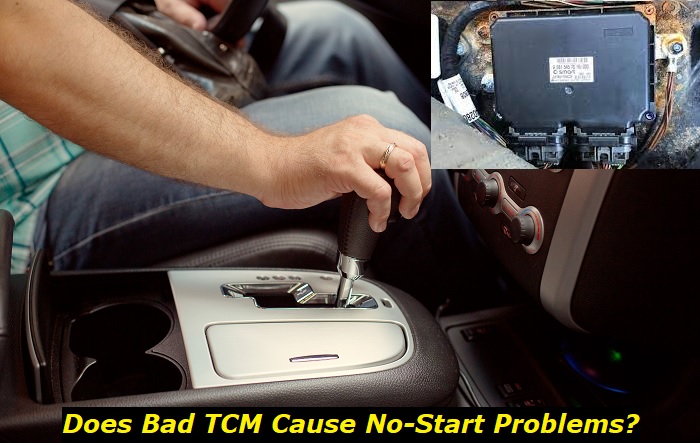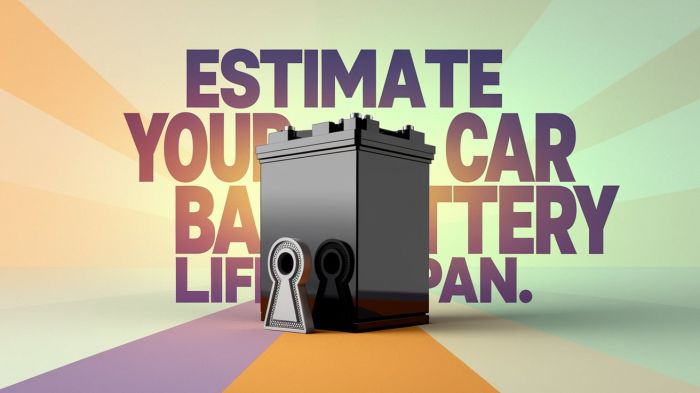A bad TCM shouldn't cause no-start problems in your car because this unit doesn't communicate with the engine. But such a problem is possible in modern vehicles. The problem is that new cars have all electronic units connected in one system and once something is wrong, the engine start may be blocked electronically.
TCM problems highlights
- Module's importance:Extremely high
- Prone to failure:Yes (in DCT mostly)
- Reasons for failure:Water or oil, damage, age
- Ways to reset:Only scanner tool
- Sphere of control:Transmission and its functions
- Symptoms of failing:Transmission failure, transmission codes, no shifting
- Price to repair:No quick repairavailable
- Price to replace:$850 - $1,900

TCM and engine start - how can they be related?
In older vehicles, separate control modules were working exclusively with the equipment that they controlled. They weren't communicating much with each other. That's why if a body control module failed, you could still start a car because the ECU was absolutely fine and did its job without caring about some BCM failures, for example.
Transmission control modules appeared in vehicles about 15 years ago when automatic transmissions became more complicated in their design and required separate electronic modules for proper control. At first, they didn't communicate with other control units, but now they clearly do.
Here's what can happen:
- your transmission control module has some serious failure and doesn't send the proper signals to the overall electric system in your car;
- the ECU understands that there is a problem with the transmission, so the ECU may throw some codes;
- also, the ECU may block engine start because it doesn't make sense to start the engine if the transmission is inoperative;
- along with this, you will see a check engine light or some other warning message telling you that there is a problem with the transmission;
- once the issue with the TCM is solved, the problem with the entire car disappears and you can start the engine;
- but this kind of communication between control units will only work in modern vehicles.
If you have an older car, it will most likely operate its control units independently and they won't affect the work of each other. So, in most cases, the bad TCM will not be able to cause the no-start issue. Because a TCM actually doesn't control the engine and can't affect the starting process.
Even in newer cars, this happens pretty rarely. And the engine may not be starting not because of the faulty TCM but because the TCM spotted a problem with the transmission and then found its way to communicate this problem to the ECU. Then, the ECU decided that it's now safer to avoid starting the engine because it may damage the transmission or lead to other issues. So, just some cases with the faulty TCM may cause no-start issues.
What are the reasons for the TCM to go bad?
There are not so many reasons why a TCM may fail. But I've already told you that the problem may be not with the TCM but with the transmission. So, the control module just spotted this problem and communicated it to other control units. This is the most common scenario.
But of course, there are cases when the TCM just dies and stops communicating with other modules and units in your vehicle. Usually, the possible reasons are as follows:
- shorted TCM because of the problems with internal electronic parts - just natural wear of the parts that may lead to fatal issues;
- overheating - in some vehicles, the transmission control module is placed in a bad location where it can heat up;
- water damage - water or any other liquid that can leak onto the TCM may easily kill it in no time;
- wiring problems - it's not uncommon for TCMs to get unplugged, especially during or after car accidents or other impacts.
In some vehicles, TCMs are just faulty and they go bad at a certain mileage. For example, in Ford Fiesta, Focus, and EcoSport equipped with the 6-speed PowerShift transmissions, the TCM is really faulty and usually dies at about 100K miles. This may lead to all kinds of glitches in the work of the transmission and also to many different warning lights and error messages.
Anyway, in most cases, this doesn't lead to the no-start problem. But if your TCM fails in a modern vehicle that was made within the previous 5 years, chances are that the TCM is faulty and causes other problems in the system of control modules.
What are the primary symptoms of a faulty TCM?
The faulty TCM is actually a serious problem in your vehicle. And it's very often hard to spot. The problem is that the symptoms of a faulty TCM are just the same as the symptoms of literally hundreds of other possible issues.
Here are some of them:
- check engine light is almost always on;
- there can be a message, something like "Transmission Fault", on the dash;
- the shifting pattern may change dramatically;
- the car may only go in one of the gears;
- the vehicle may shift too early or too late;
- it usually affects the fuel economy.
You may have noticed that I didn't include the no-start issue on the list of the most common symptoms of a faulty transmission. The problem is that this issue is not that common. Although I am not telling you that it's impossible, I insist that you should check for other reasons why your vehicle may not be starting.
Even if the TCM in your vehicle is completely faulty, it doesn't mean that you won't be able to start your engine. Only in some cases, your ECU may actually block the engine start function.
How to fix the no-start problem connected with a faulty TCM?
If you checked everything and came up with the idea that the TCM is the only possible culprit of the no-start problem, you should have it inspected. This is not a DIY task because you will need a proper professional scanner and also an understanding of how things work in your car.
With the help of a good scanner, a professional mechanic will quickly inspect the TCM and other control modules. Also, the mechanic will most likely unplug the TCM and inspect it visually. There are certain tools and methods that allow them to check the module in terms of the quality of its work.
After the inspection is over, the mechanic will offer the best possible solutions for the problem. Surprisingly, these solutions won't always include TCM replacement. These modules are usually quite durable and they almost never require replacement. Fatal things can happen to them in two cases: accidents with serious impacts and also water damage.
Can you drive if the transmission control module is bad?
If your car starts, you can potentially drive. But if the transmission control module is not in good condition, your driving will be quite stressful. Should you drive the car in such a case? Or should you avoid driving and call a tow truck to get your vehicle delivered to the shop?
Actually, you can drive if your car starts and goes. Even if the TCM is faulty, it doesn't mean that you need to call a tow truck. Also, you shouldn't just ignore the problem and keep driving.
Here are the signs that you better avoid driving:
- there are grinding noises from the transmission;
- the gearbox only applies one gear - usually, it's the third gear;
- the transmission shifts too early and the RPM of your engine is always very low;
- the transmission doesn't shift from the first gear till the engine reaches 4-5 thousand RPM;
- the warning message tells you to stop the vehicle and turn off the engine;
- the car stalls when trying to shift.
If you encounter one or several problems from the list above, you should stop the vehicle and turn off the engine. Otherwise, you can kill the transmission or cause other serious and fatal issues in your vehicle.
Final thoughts
Now you know that TCM failure may rarely cause no-start issues with your engine. But before you come to this conclusion, you should check other possible culprits. Your TCM is unlikely to fail just because of natural wear and tear. It will most likely die because of several common reasons that I've listed in this article.
If you encounter problems with your TCM, pay attention to the behavior of your vehicle. This will tell you if you still can drive or if you should call a tow truck and deliver the car to the repair shop.
About the authors
The CarAraC research team is composed of seasoned auto mechanics and automotive industry professionals, including individuals with advanced degrees and certifications in their field. Our team members boast prestigious credentials, reflecting their extensive knowledge and skills. These qualifications include: IMI: Institute of the Motor Industry, ASE-Certified Master Automobile Technicians; Coventry University, Graduate of MA in Automotive Journalism; Politecnico di Torino, Italy, MS Automotive Engineering; Ss. Cyril and Methodius University in Skopje, Mechanical University in Skopje; TOC Automotive College; DHA Suffa University, Department of Mechanical Engineering






Add comment